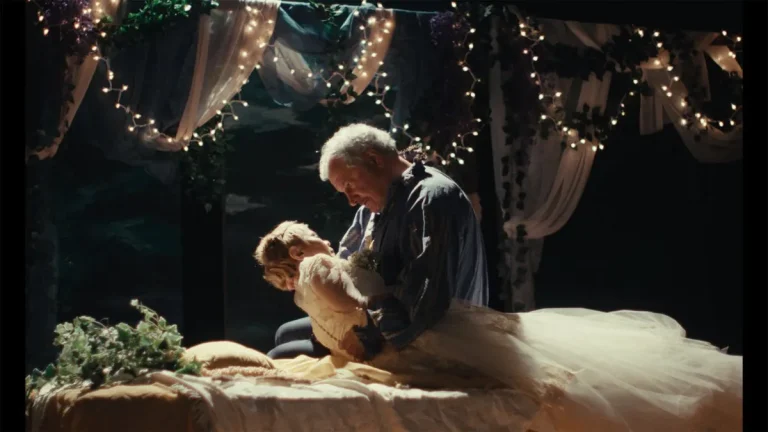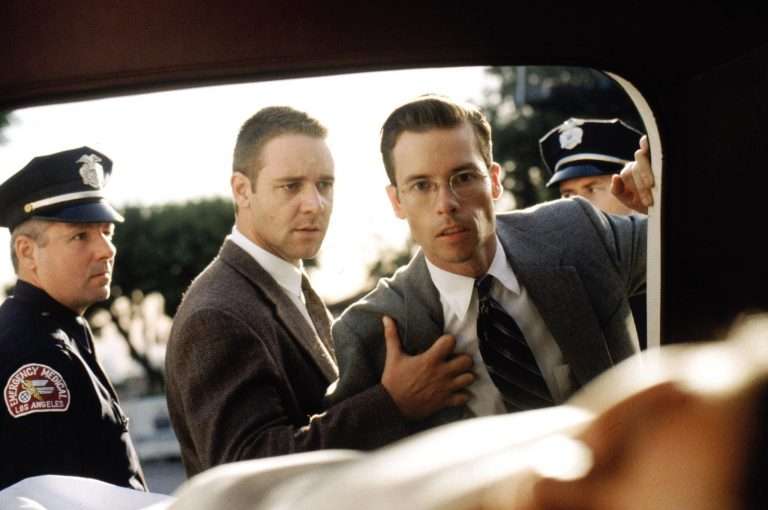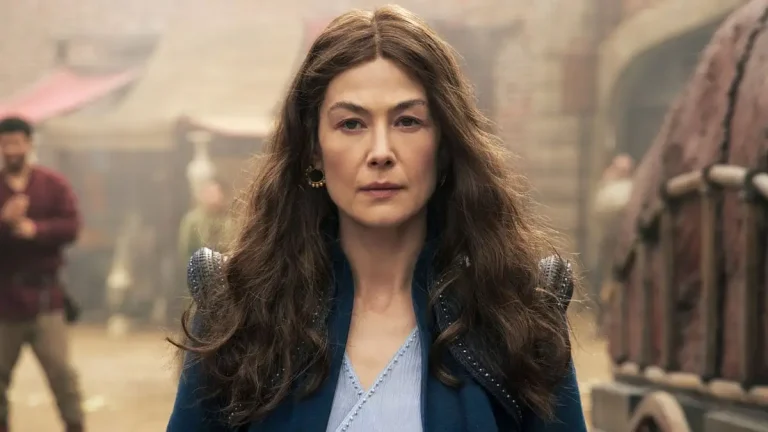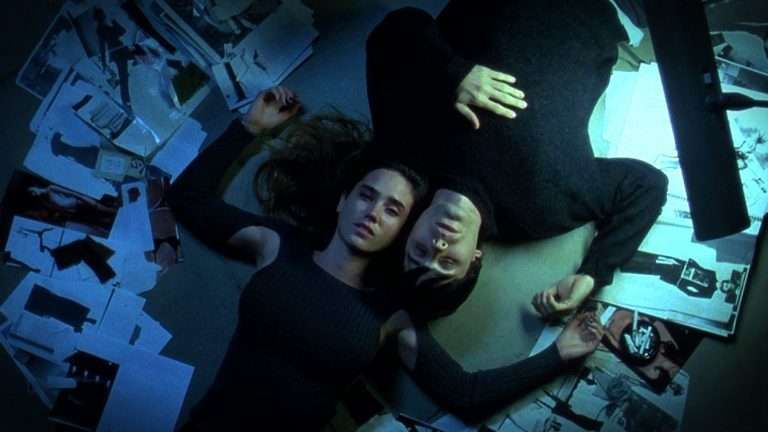For a film that dares you to live your dreams (the big fat cliché of our times), a film with a “troubled” storyteller at its center, Tamasha never rises to inventive narrative heights. Despite the Rumi quote about unfolding your own myth, it relies heavily on beaten-to-death stereotypes to create a very ordinary story. It interjects it with flashes of famous sagas (Romeo-Juliet, Heer-Ranjha…) to make the complete package appear hip or profound. It doesn’t create any myth.
The problem with Tamasha is the problem with many self-serious films that pass off as thoughtful. They take up a worldview, “do what you like,” in this case, but never explore the possibilities of that decision. We see actors suffering a lot more than in other films and with unimaginable intensity, but it all looks fabricated in hindsight. The intensity of their sorrows makes up for the loopholes in the narrative. If they didn’t suffer, the movie simply wouldn’t exist.
Ranbir Kapoor wants to be a storyteller but is not able to live up to that dream. Why? Not because the process of making stories is painfully long and one is often left stranded in search of good ideas, not because in order to create new myths, one undergoes self-doubt and questions one’s understanding of reality, not because we humans never get satisfied with what we do and it is eventually a deep-rooted question concerning how we actually tick. Daddy, dearest, makes sure we never ask those questions. He forces maths on poor Ranbir ever since he was a child, eventually destroying his soul until a girl looks deep into his eyes and finds a trapped Shakespeare.
Let’s break the movie down:
- A boy loves to hear stories and doesn’t like to study.
- He frequents an aging storyteller and listens to him with rapt attention—some of the most beautiful moments of his life.
- He grows up and goes to Corsica. Meets a girl. Engages in wild fun…the YOLO kind.
- Comes back and takes up a job. It requires him to act severe and robot-like.
- The girl meets him again. There are scenes where she tries to discover the fun-loving storyteller behind the robot. The robot gets angry, and things go sore.
- More suffering continues on the Robot’s part. And some on her part.
- Robot introspects, decides that he should be happier as a storyteller, and quits his job. He goes to confirm his theory with the old storyteller. The old man curses him to the point of having mad fits and tells him to create his own myth. Theory confirmed! The hero is finally liberated from his neurosis. He runs back home.
- He begins practicing his skills at home and narrates the story of how screwed up his life could have become had he remained in corporate. Dad understands. They hug and cry.
- We see flashy lights, hopping jokers, and people giving a standing ovation. Then, a large heading announces: THE STORYTELLER. The robot emerges on stage, but this time, he is himself—the Corsica dude. He thanks and kisses the girl. They have kissed before in the movie.
Isn’t the story chock full of stereotypes? It is a set template that has formed big pours on its surface over the years. I think Imtiaz Ali knows that it doesn’t work anymore, so he adds references to existing stories. The most pronounced being that Ranbir is fired by his boss, and we see Ravan laughing in an immediate frame! This gives the illusion that the movie has many layers. It doesn’t. But Imtiaz Ali is crafty in setting good scenes. There are also some in this movie, like occasional lampposts in thick mist. Like the “Ranbir getting fired” scene or the brilliant mime-like sequence where Deepika tries to console the angry Ranbir, a scene so well played it looks like the part of a more convincing film.
Does Ranbir’s character realize that had he not joined corporate and had not experienced the boredom of a cubicle, he would never have come up with the gag about him being a robot on a treadmill? This appears to be his selling point, as that is the only routine he is shown performing on stage. So, in order to earn that allegory, he had to go through the grind. I am sure if he thinks hard, his next gag would be related to learning maths in a classroom. The life he ran away from actually gave him the stories he would tell in the life he chose. It is sad that a movie that showed some promise had to settle for easy, forced conclusions rather than honestly exploring the myth-making abilities of its protagonist. One wonders what kind of stories the guy who calls himself Don would come up with to escape his immediate reality. One is left wondering.
I am yet to see a film where the father gives a go-ahead signal from the word go, where there are no clichéd hindrances, where everyone complies, and the movie focuses purely on the protagonist and his search for “this is who I am.” It would be interesting to see how long he can hold on to what he discovers before getting bored, having second thoughts, or struggling to sustain that choice. With Dad out of the equation, creating drama would not be easy. But that would make some myth. That would make Rumi really happy.








